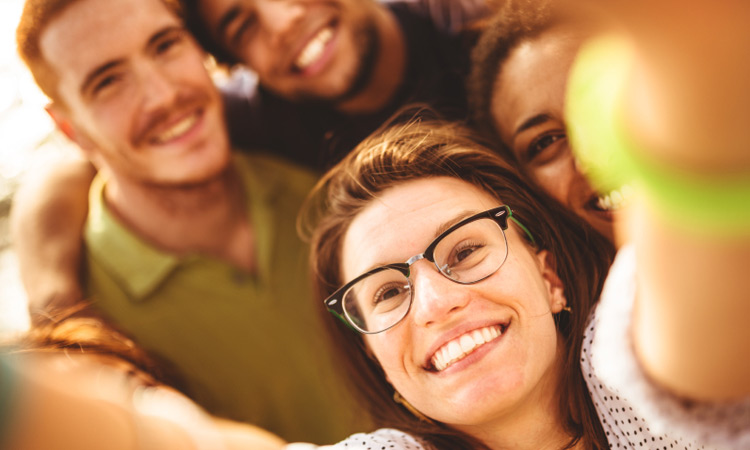 Think about someone you love, a friend who has seen you through good times and bad. Sit with that thought and pay attention to how you feel. It’s likely that your breathing slows, your muscles loosen and the experience feels pleasant. Friendship is good for you. The human brain is designed for friendship, and friendship is designed to make a positive difference in your brain. This bidirectional feedback loop is healthy both physically and emotionally.
Think about someone you love, a friend who has seen you through good times and bad. Sit with that thought and pay attention to how you feel. It’s likely that your breathing slows, your muscles loosen and the experience feels pleasant. Friendship is good for you. The human brain is designed for friendship, and friendship is designed to make a positive difference in your brain. This bidirectional feedback loop is healthy both physically and emotionally.
Human beings look for ways to belong, to create a circle of close “others.” It’s not a fluke that we do this; it’s how we’ve evolved. The brain generates feelings of empathy through social interactions that are helped along by mirror neurons. Mirror neurons increase connectedness by helping us imitate others. Good imitators are able to imagine how other people feel, what they might think and how they might react, and this process fosters mutual bonding. The idea is that there is a “correlation between the tendency to imitate others and the ability to empathize with them.” That ability to empathize is the most important building block of friendship.
Empathy is also helped along by language. As humans evolved, we bonded by exhibiting grooming behaviors such as smoothing the hair of and picking fleas off loved ones, and later built toward signs and symbols and finally—a more efficient path—developed language. We have the ability to communicate our thoughts, share ideas and exchange experiences of our emotions by talking to one another. Spoken and written language serves as a shortcut and promotes mutual understanding.
Mutual understanding and empathy lead to stronger bonds, healthier brains and healthier overall systems. In fact, friendship lowers your risk of dementia and increases brain resilience. Research shows that the larger your social network (in-person connections, not Facebook friends), the lower your risk of cognitive decline. The more pleasurable friendships you have, the more stimulated your brain will be. Isolated people are at risk for having unstimulated, unhappy brains. One study even showed that social isolation leads to high mortality rates. Friendship, then, provides protection against more than just loneliness. To some degree, it protects us (at least temporarily) from death.
Friendships aren’t just abstract notions that provide pleasant feelings. When you befriend someone, a very real blurring of the self occurs. The line between you and your friend becomes fuzzy, making it harder to distinguish between a threat to your friend and a threat to yourself. Researchers at the University of Virginia performed brain scans and discovered that people “closely correlate [with] people to whom they are attached themselves,” meaning that people who are close to us essentially become part of us. James Coan, a University of Virginia psychology professor, says: “The finding shows the brain’s remarkable capacity to model self to others; that people close to us become a part of ourselves, and that is not just metaphor or poetry, it’s very real. Literally we are under threat when a friend is under threat. But not so when a stranger is under threat.” Aristotle said it best: “What is a friend? A single soul dwelling in two bodies.”
Friendship comes from empathy and mutual understanding and results in an ability to identify with an “other” and a lowered risk for cognitive decline. It’s International Friendship Day, so it’s a good time to remember that our friends keep us healthy and alive! We are not alone. We have one another, and our brains like it that way.
Click here to see Rose’s tips for healthy and happy relationships

3 Comments
Elena
I’m studying Psychology in school and it is incredible how important “social bonds” or friendships are!!!
Gianna Caiola
Good luck in your studies Elena!!
xoxo
Pamela
So true, Elena!